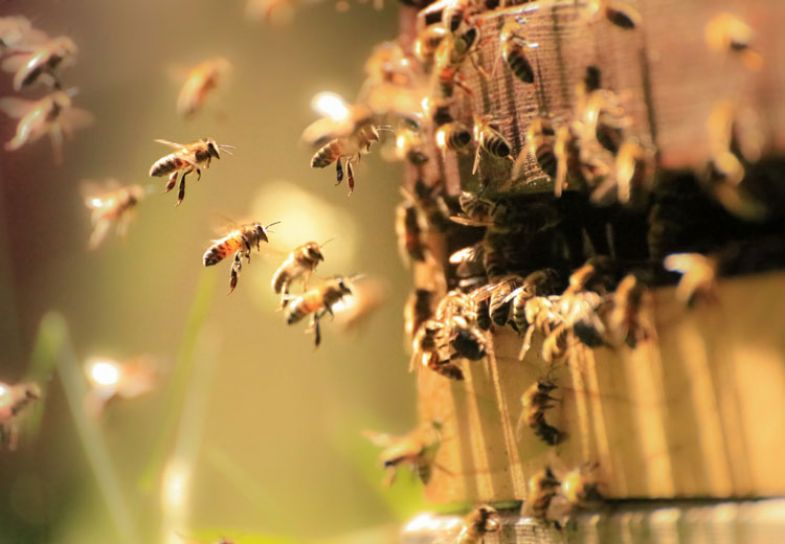
At King Khalid University, researchers are working with industry to boost the country’s apiculture sector
The people of Saudi Arabia have consumed honey for thousands of years. As part of its Vision 2030 strategy, the country is turning to beekeeping and honey production to boost economic development. Researchers at King Khalid University in Saudi Arabia are applying their expertise to the national bee and honey production drive.
Saudis are estimated to consume 320g of honey a year – double the global average, says Professor Hamed Al Ghramh, who heads the unit of bee research and honey production at King Khalid University. “This has prompted the increase in calls by specialists to expand and maximise honey production as a Saudi economic and food resource,” he says.
Beekeeping also provides an important financial supplement for many of the country’s rural households. The government wants to promote new beekeeping methods that help to boost the profitability of hives, from increased honey production and related products such as propolis and wax.
Since its inception three years ago, the bee research unit at King Khalid has produced more than 70 international scientific publications and two patents. Professor Ghramh’s “number one priority”, though, is to strengthen the indigenous bee strain found in the country, the Arabian honeybee. Bees imported into Saudi Arabia struggle to survive in the region’s extreme temperatures, explains Professor Ghramh.
For one project, scientists at the bee research unit characterised genetic diversity among local bees and identified new hybrid strains. In another project, they probed the cancer-fighting properties of local honey. Ultimately, the team discovered that honey produced in high-altitude regions, using acacia pollen, was effective against cancer cells in laboratory experiments. Other research has focused on boosting bee health and curbing pests that can kill colonies and taint their honey.
Professor Ghramh and his colleagues are investigating not only the chemical properties of the honey produced by indigenous bees but also how to improve the queen’s fecundity and health. To do this, they are collaborating with colleagues in South Africa, Germany, Kenya, the UK and the US.
Because of seasonal temperature changes, beekeepers must move their hives to provide indigenous bees with consistent access to plants from which to forage pollen. Professor Ghramh and other researchers hope to develop a bee strain that is better able to withstand temperature changes.
There are about 16,000 honey producers in Saudi Arabia, says Professor Ghramh, and the government is committed to increasing participation in beekeeping. To this end, the unit is helping to train beekeepers in the latest methods. In its work to develop the sector, it is collaborating with the Saudi Ministry of Environment, Water and Agriculture and the Beekeepers Cooperative Association.
Through this partnership, the unit aims to “support industry by raising and developing the efficiency of local content and capacity building, organising and developing bee pastures, and encouraging investment and scientific research”, Professor Ghramh says.
The research unit is also improving national honey production standards and developing a mark of excellence to distinguish honey of exceptionally high quality, says Professor Ghramh. “The project begins with examining the honey and ensuring that it conforms to international and Saudi standards,” he says, adding that this includes testing for safety and quality, as well as packaging and marketing. Meeting these standards is crucial if the apiculture sector is to develop as it needs to, Professor Ghramh says.
Find out more about King Khalid University.



